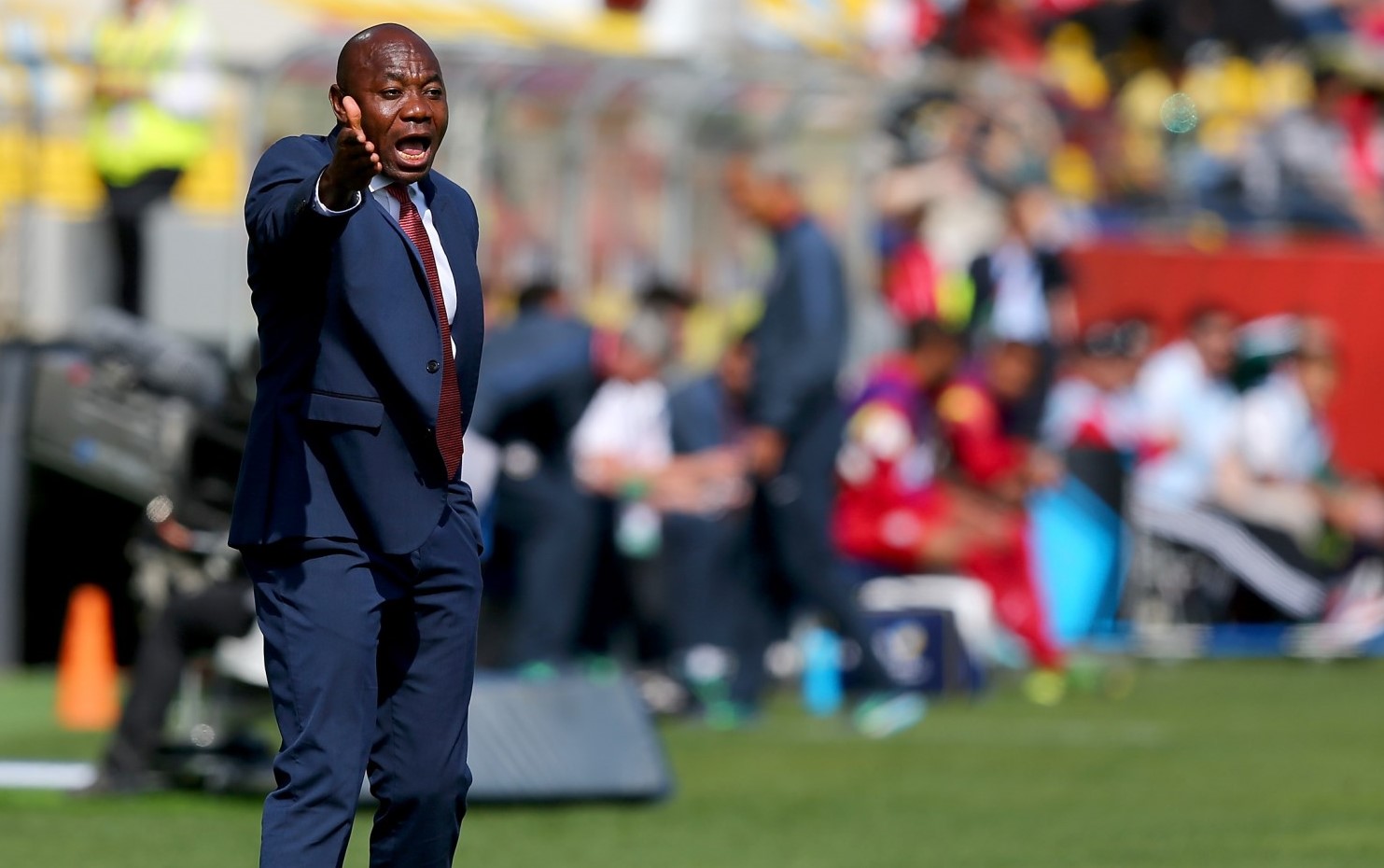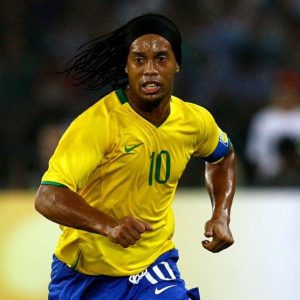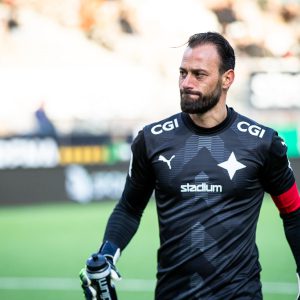

Emmanuel Amunike: “We cannot be European standard, but we can create an African standard.”
“The 1994 jersey…” sighed Emmanuel Amunike whimsically as he fondly remembered the beautiful white and green patterned shirt which Nigeria sported at the World Cup in the United States. His reaction is typical of all football fans of a certain vintage, not to mention classic shirt collectors and Super Eagles fans. But for Amunike, that kit holds particularly fond memories. He is one of a select few to have actually worn it on the heat of battle.
“My first goal was Bulgaria and then against Greece, I gave assist to Finidi George. Then against Italy, I scored the first goal but we were not able to maintain the game and we lost at the end – but that’s football.” Emmanuel Amunike
Even for a man who played alongside the like of Hristo Stoichkov, Gheorghe Popescu, Luis Figo, Laurent Blanc and Fernando Couto at club level, it’s clear that his memories with Nigeria national team are especially evocative. Now a budding scout and coach, his passion for the Nigerian game is clear as day and is most evident when he talks about how football in the country can be improved in the future.
We have grown, we have developed, but we cannot forget that the route to success is always under construction. We cannot say because we suddenly start having players at the top level in Europe, we have a divine right.”
“We have to develop the ones playing in the African continents, we have to see how we can emphasise more on our youth,” he said before continuing, “We have to do away with the idea that players are only ‘talented.’ we have to do see how we can build a player.”
This is a topic which is at the forefront of many who are devoted to African football’s minds. Because of the league’s diminutive stature and struggles with poor playing conditions compared to Europe, European clubs know they can sign excellent young players at a reduced price. With less top players choosing to stay in Nigeria, the league is unable to smash the glass ceiling – it’s a vicious cycle. “The end product is not in Nigeria; the end product is in Europe.”
“The leagues are not ready to accommodate young players,” Amunike went on to say. “we all know the ambition of going to Europe to continue our career. But the fact is that not everyone will go to Europe. The few ones that privileged to be spotted by European clubs and signed can continue. The ones that are not able to make it can be enrolled in the league in Nigeria where they can continue the learning process. We shouldn’t forget that the adaptation process is different. Some adapt quick, some adapt slowly.”
A change of focus is, in Emmanuel’s eyes, exactly what is needed: “What we look for in Africa is immediate results. This is the major problem. We win today, tomorrow we don’t have stability. But we can lose today, but we are working in the direction of the next one.”
We cannot be European standard, but we can create an African standard.”
But although Nigeria’s conditions are not ideal, the depth of talent in the country is without peer in his continent. Amunike is one of many to have made it to the very top of the footballing ladder. How did it come about? Well, playing for Nigeria against Egypt, Amunike played well in a 2-0 victory, prompting inquiries by Zamalek scouts. With Zamalek, he won the lo, including the African Cup of Champions Clubs, the forerunner of the CAF Champions League. From there, he signed for Sporting and later Barcelona before hanging up his boots at Albacete.
But despite his opulent playing path, he has still struggled to find work in Europe, perhaps more than other coaches and scouts not as skilled as him. “We all understand the situation in Europe. They find it difficult to give the confidence to a black man to coach in their league – it’s very annoying and frustrating that you did your coaching qualification in Spain but when it comes to the opportunity you are not getting. But at the same time, you cannot lose hope in what you believe, you just have to stick to your plan.”
But despite the obstacles in his path, Emmanuel’s love for the game is infectious, and summed up beautifully in the following monologue: “Football is something that comes from you. It’s not something that they force upon you, it’s a passion. When you are passionate about something, when you love what you are doing—it’s like coaching also, people don’t get involved in coaching because of the money. First, you must love the job. Even at my age 50 years in December, I am still passionate about the game, I still go out to play with friends. It’s what makes me happy, it’s what gives me joy. Sometimes, if I don’t play in a week, I feel anxious, I feel like something is missing.”
Get to know more about Soccer HUB!
Follow us on Facebook!
Categories
Latest Courses
-
9 Lessons
-
1 Lesson
-
6 Lessons
You May Also Like
-
-
August 1, 2022
-
-
June 3, 2022
-
-
May 27, 2022





